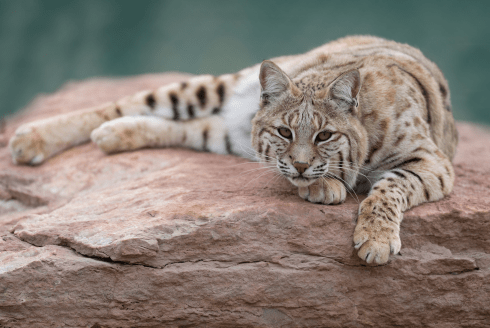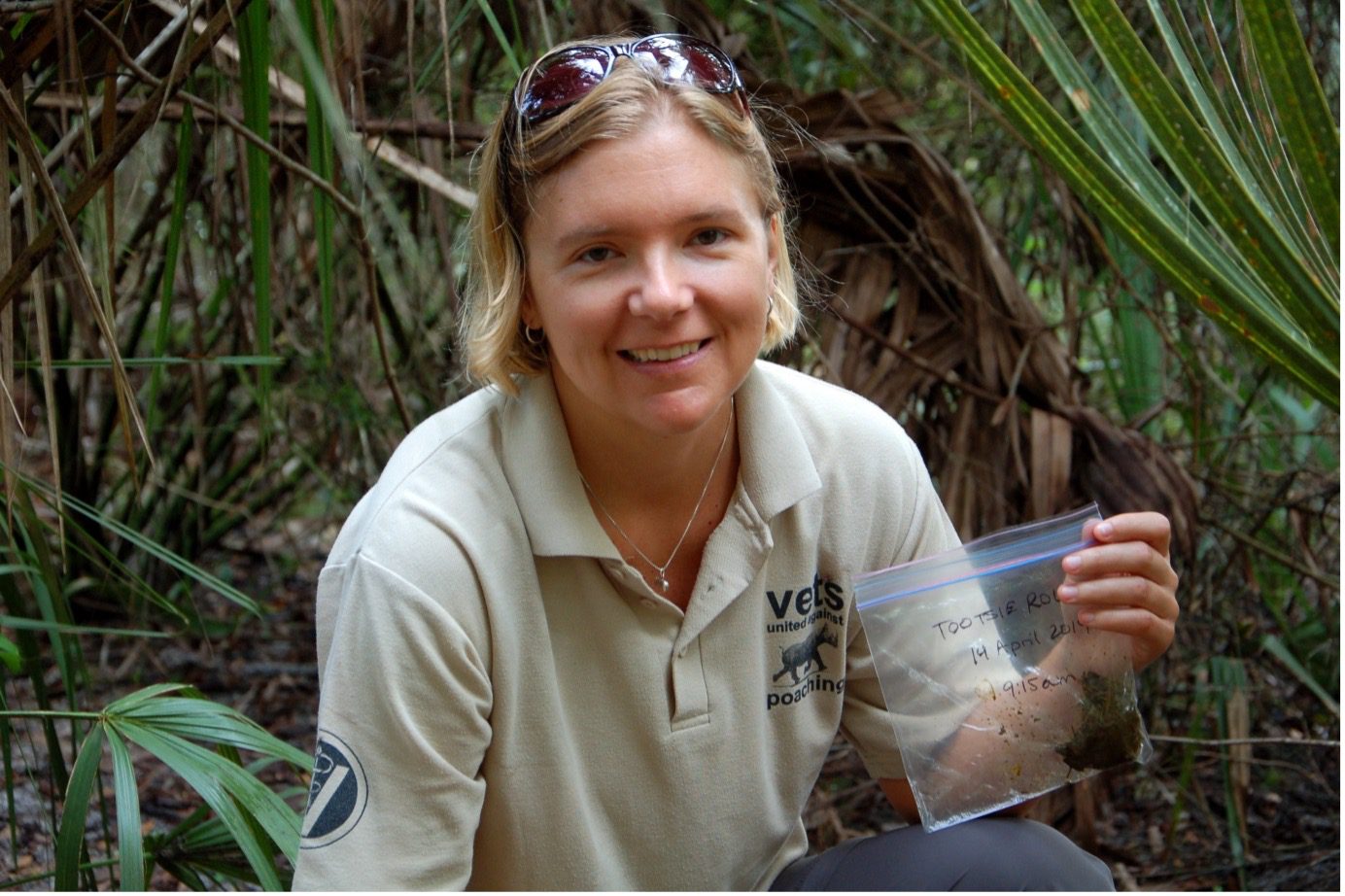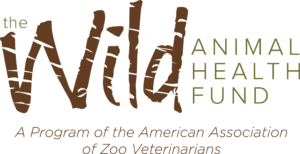2023 Research Projects
Your support gives these species a chance.

Antiviral medications for elephants with EEHV
Elephant endotheliotropic herpesvirus (EEHV) is a devastating, highly fatal hemorrhagic disease that impacts both species of elephants. This study focuses on the effectiveness and dosage of medications to treat infected elephants.
Rat poison exposure and risk in carnivorous and omnivorous mammals of Missouri
Anticoagulant rodenticides (rat poisons that inhibit blood clotting) pose major risks to wildlife everywhere they are used. This study focuses on the risk for free-ranging mammals, both carnivores and omnivores, in Missouri.


Investigating genetic influences on hyperthermia in the endangered American red wolf
Due to the limited genetic diversity within the endangered red wolves, identifying the genetic cause for hyperthermia will have practical and valuable implications on the remaining population for the continued management of this species.

Determining the best immobilization protocols to aid in the management of free-ranging giraffes in South African National Parks
Free-range giraffes are notoriously difficult to capture safely for transport and medical procedures due to their unique physiology and anatomy. This project aims to investigate physiological and stress-related responses to three differing immobilization protocols during the immobilization process of free-ranging giraffes.
Investigating strandings and mortalities of Franciscana dolphins along the São Paulo coast, Brazil
Franciscana dolphins are small odontocete cetaceans that inhabit coastal waters off Brazil, Uruguay, and Argentina and are considered vulnerable to extinction. Entanglement in gillnets is the main threat to this species; however, other anthropogenic impacts and infectious disease could also play a role. This project aims to investigate causes of stranding and death to better understand these impacts and to better preserve this species.


Determining effects of immunosuppression of northern watersnakes to susciptbility to infection by fungus, Ophidiomyces ophidiicola
Ophidiomycosis, caused by the fungus Ophidiomyces ophidiicola, is a potentially fatal disease in captive and wild snakes characterized by cutaneous lesions like raised necrotic scales, crusting, and ulcerations. This study aims to determine effects of suppressing the immune system on outcomes of Ophidiomyces ophidiicola infection in watersnakes. This will assist in managing cases and outbreaks of ophidiomycosis in at-risk captive and free-ranging snake populations to protect snake health globally.
Determining best methods for diagnosis and treatment of common fungal infection, Macrorhabdus ornithogaster, in budgerigars
Macrorhabdus ornithogaster is a pathogenic yeast that can cause significant morbidity and mortality in both wild and captive birds. Budgerigars are one of the most affected species, making this an important disease of client-owned birds and zoological collections. The aims of this project are to determine the best diagnostic and treatment strategies in order to provide optimum care and management of budgerigars.

Investigating skin fungal flora of healthy and stranded Northern elephant seals with and without hair loss in California
The normal skin flora, including fungal organisms, is necessary for optimal health and prevention of the colonization of pathogenic organisms. This study aims to determine any correlations between certain fungal organisms that are associated with skin disease and hair loss in stranded and healthy, free-ranging elephant seals in California.


Investigation of a heart disease in degus and potential cause, a novel Helicobacter sp.
The common degu is a highly social species of small rodent endemic to central Chile. Despite their popularity in zoos, biomedical research, and as personal pets, relatively little is published on natural disease. This study aims to characterize a novel Helicobacter sp. and determine if it is associated with heart disease in degus.
Characterization of kidney damage secondary to exposure to the biotoxin, domoic acid, in free-ranging California sea lions
Biotoxins produced by harmful algal blooms have become an increasing global threat to ocean and human health. Domoic acid (DA) is a biotoxin which can cause acute and chronic neurobehavioral deficits, cardiac disease, and mortality in numerous marine wildlife species, including California sea lions. This study aims to identify kidney damage in California sea lions due to consumption of DA-contaminated seafood in order to better mitigate and manage toxicosis in this and other species including humans.


Cross-species transmission of herpesvirus in monkeys at rehabilitation facilities in Peru
Primate trafficking is a big issue in Peru and many abandoned or confiscated primates are placed in rehabilitation facilities where health screenings are completed. These screenings usually lack testing for infectious agents such as Herpesvirus (HV) that can be transmitted to rescued primates following contact with humans or other primates. This study aims to investigate cross-species transmission of herpesviruses to inform primate conservation efforts and contribute to the healthcare of primates recovered from wildlife trafficking.
Investigating Heavy Metal Profiles of Blanding’s Turtles and Red Eared Sliders Through Blood, Tissue, and Environmental Sampling
Wildlife populations are experiencing unprecedented habitat loss, fragmentation, and contamination due to increasing human population size and urbanization. Many of these threats have negatively impacted Blanding’s turtles, an endangered species. Head-starting and general health assessments have supported Blanding’s turtle conservation efforts in northern Illinois. This study will identify habitats and turtles with higher heavy metal concentrations and determine associations between heavy metal burdens and health.


Health, movement, and nutrition in sharks and rays in advance of offshore wind energy development
Elasmobranch abundance (sharks, rays and their relatives) globally has declined 71% over the last 50 years despite regulations. To better understand the current health status of shark and ray populations and establish baselines against which the impacts of environmental change can be evaluated, the collection of health and nutritional information is paramount. The main goal of this study is to perform health evaluations of several different species of sharks and rays in a geographic region where wind energy development is taking place.
Investigating the role of Feline Panleukopenia Virus in the encephalomyelitis of free-ranging mountain lions, and bobcats
Feline Panleukopenia virus (FPV) is a highly contagious virus that causes fatal gastrointestinal disease, low white blood cell counts, abnormal brain development in large and domestic cats. FPV has been involved in cases of brain inflammation (encephalitis) of domestic cats. The goal of this study is to characterize brain disease in mountain lions and bobcats in California and determine if FPV is the cause.

Health and pathogen status of Humboldt penguins in Peru
The Humboldt penguin is a declining and vulnerable species with many threats to their populations. Currently there is not enough knowledge of the penguin's health and disease to quantify the real threat that disease poses. This study will fill in the knowledge gaps in penguin health by identifying the disease threats to the birds.


One Health in the Manombo Special Reserve of Madagascar
The Manombo Special Reserve of Madagascar is one of the world’s top five biodiversity hotspots, and a global priority for conservation. The reserve supports a unique habitat for dozens of rare mammals including critically endangered lemurs. This study will provide a critically-needed baseline knowledge base on pathogen burden of lemurs and other mammals in the reserve, including invasive and domestic species
Testimonials

"I would like to express my appreciation to the AAZV Wildlife Health Fund Grant Committee for selecting my project as one of this year's grant recipients. I am excited and honored to have received this award."
Dr. Flacke
SEZARC

"We are grateful for the funding that has resulted in these important contributions to wildlife health!"
Dr. Michele Miller
Stellenbosch University
